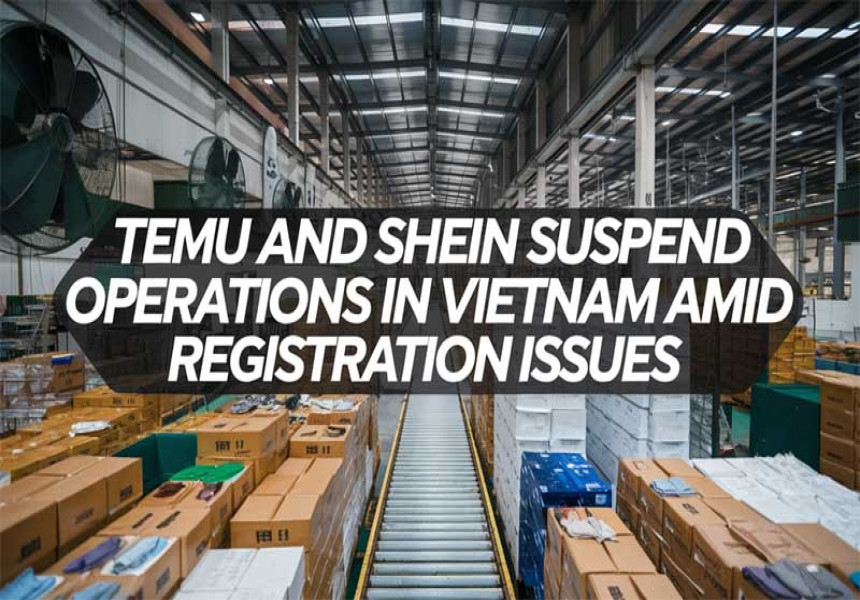Temu and Shein Suspend Operations in Vietnam Amid Registration Issues
In a significant development for budget-conscious shoppers, popular e-commerce platforms Temu and Shein have suspended their operations in Vietnam. This decision comes as both companies await approval from local authorities to resume their services, following regulatory challenges that have emerged in recent weeks.
Regulatory Background
According to reports from the South China Morning Post, the Vietnamese Ministry of Industry and Trade has taken a firm stance against the two platforms. Temu, owned by Chinese e-commerce giant PDD Holdings, was ordered to halt its business activities after failing to complete the necessary business registration process by the November 30 deadline. The ministry's directive reflects ongoing efforts to regulate the rapidly growing e-commerce sector in Vietnam, which has seen an influx of foreign players. Hoang Ninh, deputy director of the Department of E-commerce and Digital Economy, confirmed that while Temu had submitted its registration documents, it had not yet finalized the process. He stated, “Temu submitted its registration documents but has not yet completed the process.” This means that the company is currently unable to operate legally within Vietnam until it fulfills all regulatory requirements.
Impact on Operations
Despite the suspension, Temu has assured customers that it is actively working with Vietnamese authorities to complete its registration. The company announced on Thursday that it had submitted all required documentation and expressed optimism about resuming operations soon. As of now, customers can still place orders on the platform, but there is uncertainty regarding how long this temporary suspension will last. Shein, another major player in the budget fashion market, has also been affected by similar regulatory challenges. While specific details about Shein's situation have not been disclosed, it is clear that both companies are navigating a complex regulatory landscape in Vietnam.
Concerns from Authorities
The Vietnamese government’s actions are part of a broader strategy to ensure that foreign e-commerce platforms comply with local laws and regulations. Authorities have raised concerns about aggressive discounting practices employed by these platforms, which they believe could undermine local businesses and lead to issues such as counterfeit goods being sold online. The ministry has warned both companies that failure to complete their registration processes could result in severe consequences, including blocking their internet domains and ceasing access to their applications within Vietnam. This regulatory scrutiny highlights the challenges faced by international e-commerce firms operating in emerging markets.
Looking Ahead
As of December 6, 2024, Vietnamese language options have been removed from Temu's website when accessed from within Vietnam, signaling a significant shift in its operational capabilities. The company is currently collaborating with the Vietnam E-commerce and Digital Economy Agency to expedite its registration process. However, neither Temu nor Shein has provided a specific timeline for when they expect to resume full operations in Vietnam. For consumers who rely on these platforms for affordable shopping options, this suspension raises questions about the future availability of their favorite products. As both companies work through these regulatory hurdles, shoppers are left waiting for clarity on when they can return to their usual online shopping routines. In conclusion, while Temu and Shein navigate these challenges, their experiences serve as a reminder of the complexities involved in expanding e-commerce operations into new markets. The outcome of this situation will likely influence how other international platforms approach their entry into Vietnam's burgeoning digital economy.









